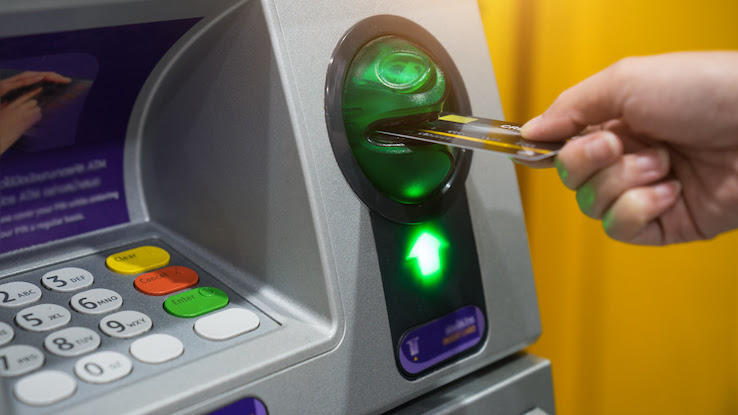How to Turn Off Bank Feeds in Quickbooks

Most individuals and businesses today have some type of banking account. Having a trusted financial service provider is important as it is a safe place to hold and withdraw earned income. There are other financial services that banks provide as well that could be helpful to growing a financial portfolio.
Ultimately, banks are also critical to driving the economy through consumer and business loans and the interest rates charged on those loans. Let's take a deeper dive into how banks work and the services they offer.

Banks are vital for both consumers and businesses. With various accounts offered, they provide a place to conduct regular banking transactions including deposits, withdrawals, and bill payments. There is also the opportunity for banking customers to apply for business or home loans or investments depending on their financial needs, which can help to grow the economy.
Banks also are important to investors because the banking system controls the flow of capital. The management of capital allows banks to be financially successful, which raises the stock value for shareholders. Because banks could truly make or break the economy, it's important that they also comply with strict regulatory requirements set by the U.S. Federal Reserve System. The Federal Reserve is comprised of 12 regional reserve member banks that oversee banks throughout the country for the good of the economy.
What Do Banks Do?

There are different types of banks with equally different purposes. Retail banks, which can be physical or strictly online these days, are what most individual consumers are used to working with. These banks help to establish personal checking and savings accounts for funds in a secure place. Deposits for banks are insured by the Federal Deposit Insurance Corporation (FDIC). If the money is lost by the bank somehow, the FDIC will help consumers recover up to $250,000 in individual accounts and $500,000 for joint accounts. Commercial banks are typically geared towards businesses or corporations but also provide deposit accounts, loans, and other banking services.
Investment banks focus on investors interested in putting money into the stock market and growing their financial portfolios through purchasing and selling shares. Central banks help to manage the supply of money for an entire country or group of countries. A country's central bank helps to establish financial policy, interest rates, and currency movement. In the U.S., the Federal Reserve is the central bank.
How Do Banks Get Their Money?

With commercial banking providing banking services to the public, banks are able to make money from service charges and fees. These fees could include account fees (monthly maintenance charges, minimum balance fees, overdraft or non-sufficient fund fees), safe deposit box fees, and late fees.
Banks can also earn money from interest owed by lending out money to individual consumers and businesses. They typically do this by charging more interest on loans and other debt than what they pay to those who have savings accounts. If a bank pays out 1% interest on savings accounts while charging 6% interest on loans, that would earn a gross profit of 5% for the bank's owners (shareholders).
Important Banking Services

Across financial institutions, many of the core banking services offered are the same. The services most often provided include a variety of checking accounts for everyday spending. Banks will also provide saving accounts to help consumers develop emergency funds or work towards a long-term goal like buying a home. Your bank will likely offer certificates of deposit which are time deposits that pay interest over a set period. Common CD terms range from 30 days to 60 months, but you could find terms as long as 10 or 20 years. Generally, the longer the term, the higher the interest rate you can earn.
Additional services may include loans for cars and home mortgages, safe deposit boxes, and investment-related services. Many banks also offer different services of convenience like online and mobile banking, fraud protection, and educational content for personal and business finances.
How Do Banks Help Society?

From a national, regional, or local perspective, banks help keep money flowing through deposits and loans. Particularly on a local level, banks are helping to fund the communities where their customers live and work. The banking system also helps to facilitate internal and international trade. Bank employees are able to be advisors and agents of business and industrial organizations, which helps to boost trade and industry.
With the aforementioned financial services that banks provide, they are helping to improve the lives of people overall. If you look at it from a personal level, credit offered by banks helps families move into new homes or aspiring entrepreneurs open their own businesses. More successful and diverse businesses help to boost commerce and drive the economy in a positive direction. Banks can also assist students with financing their college degrees in order to attain their desired careers.
Reasons Why We Need Banks

There are several reasons why we need banks in today's society. As already discussed, banks help to keep money safe for customers. Rather than keeping money stashed in a safe or under a mattress with the potential of being robbed, account holders can have faith that their money is in good hands. Banks assist not only individuals and households, but also financial and nonfinancial firms, and national and local governments with both deposits and loans.
Banks also work to create money to keep the economy flowing. Banks create money when they lend the rest of the money depositors give them. They also protect money from losing value against inflation by offering customers interest on their deposits. They must also hold a portion of their deposits (either in cash or securities that can be converted to cash) on reserve for central banks. That monetary policy is key to economic growth but must be carefully worked out. If banks have a sharp increase in bank reserves or liquid assets, it can reduce the amount of money that banks have to lend out. That can lead to higher borrowing costs for customers, hurting them and their communities and ultimately the country's economy.
Source: https://www.askmoney.com/budgeting/banks-important?utm_content=params%3Ao%3D1465803%26ad%3DdirN%26qo%3DserpIndex&ueid=0a12ee5f-3b8f-456a-9020-fab31ced7cf5
Postar um comentário for "How to Turn Off Bank Feeds in Quickbooks"